Berlin 2024 Programme
Opening
Haus der Kulturen der Welt
John-Foster-Dulles Allee 10, 10557 Berlin / Subway: lines S5, S7, S9, S75, station: Hauptbahnhof
Free admission
Welcome to the Berlin 2024 edition!
We look forward to seeing you at the opening night on Tuesday 9 April 2024, with free admission. Two magnificent screenings, the inaugural session at 7m , and "The Gift" at 8.30pm, plus a live mix party from 10.30pm.
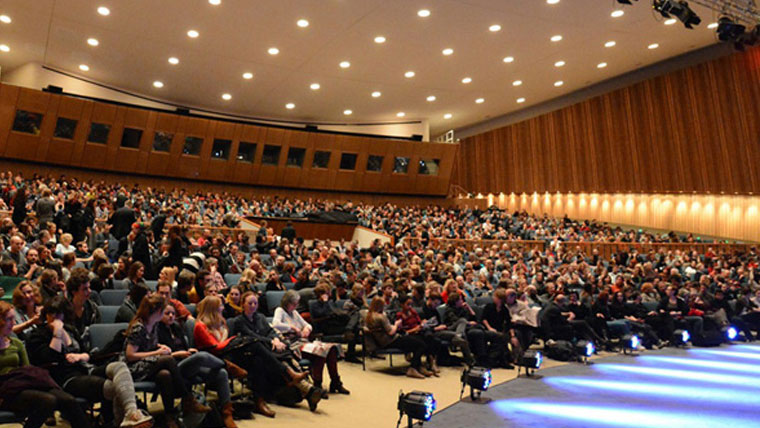
Opening
Haus der Kulturen der Welt | Auditorium
John-Foster-Dulles Allee 10, 10557 Berlin / Subway: lines S5, S7, S9, S75, station: Hauptbahnhof
Free admission
Inaugural session
A beautiful surprise screening, with 5 rare films shown in German premiere.
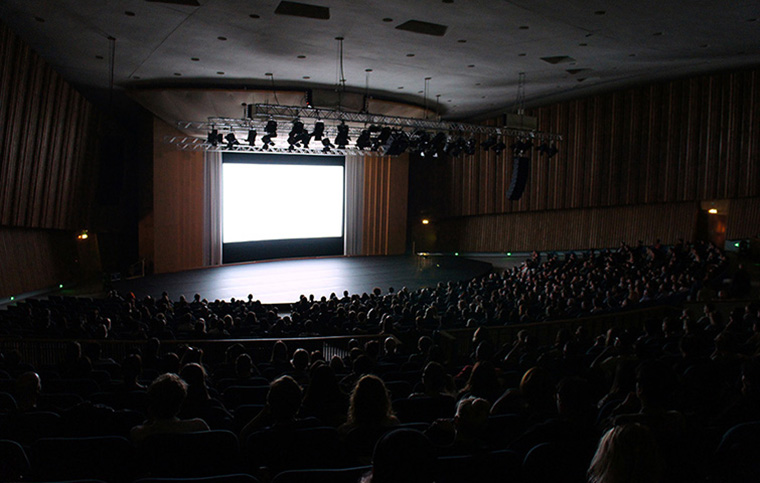
Opening
Haus der Kulturen der Welt | Auditorium
John-Foster-Dulles Allee 10, 10557 Berlin / Subway: lines S5, S7, S9, S75, station: Hauptbahnhof
Free admission
"The Gift"
Assaf Gruber : Never Come Back - Experimental fiction | 0 | color | 14:0 | Germany, Austria | 2023
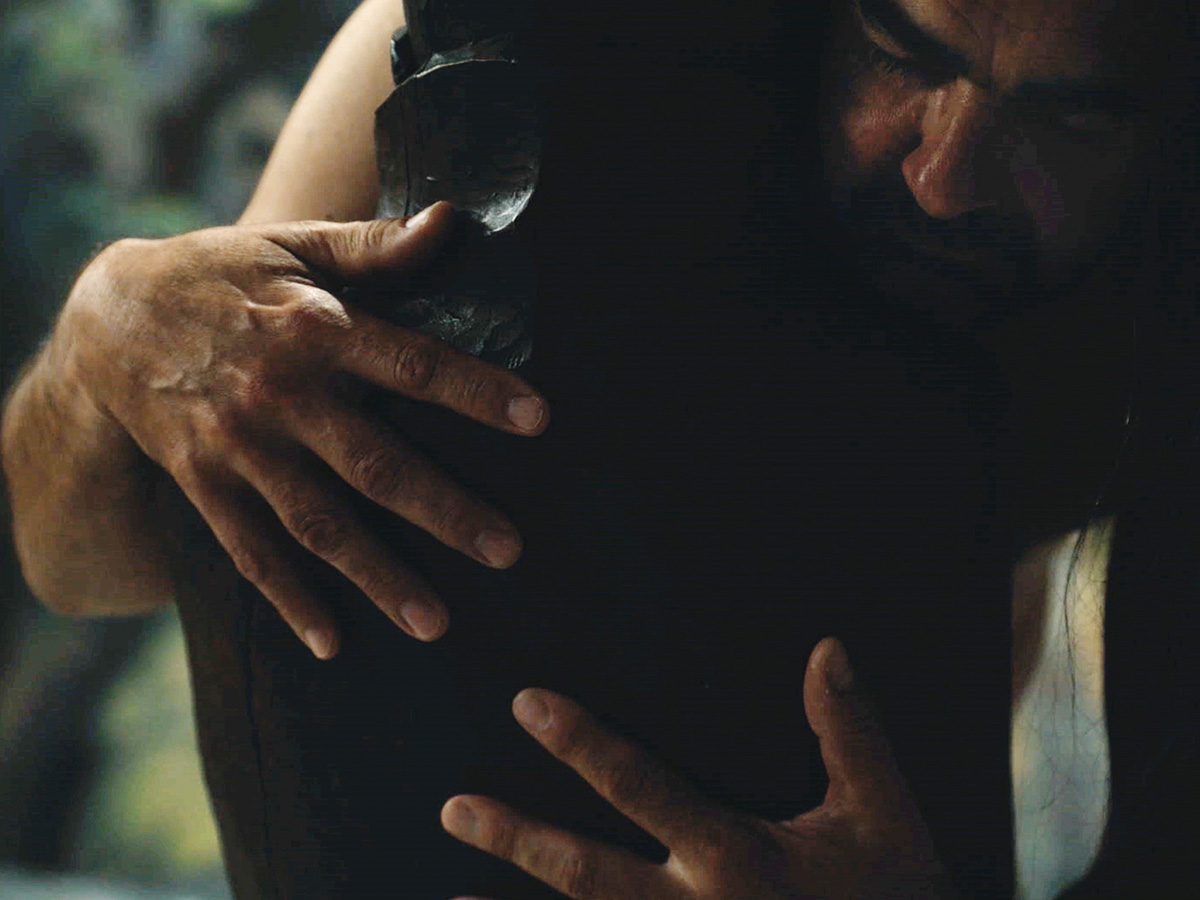
Assaf Gruber
Never Come Back
Experimental fiction | 0 | color | 14:0 | Germany, Austria | 2023
Museum depots are places where things are kept out of sight, but also protected from all-too-schematic historical judgments. In his new film, Assaf Gruber continues his ongoing investigation of the backstage areas of art institutions to engage with Neue Galerie Graz’s holdings. In the cage-like space of the repository, we see a naked musician working intensely on a composition. He is inspired by artists who belong to a gray area between modernist aspirations and enthusiasm for Nazism, and whose works combine a taste for the exotic with local patriotism, religious fervor, and eroticism. Our mysterious protagonist tentatively plays a familiar melody. It's a song known to many of us, recognisable from dance floors across Europe - but how many of us have ever bothered to listen to its remarkably rascist and imperialistic lyrics?
Assaf Gruber (b. Jerusalem, 1980) is a sculptor and filmmaker living and working in Berlin. The dynamic relationship between individuals and institutions is at the center of his practice, which aims to explore both how the political orientation of legacy establishments impact the lives of individuals and how these organizations choose to represent and communicate facts and their attendant artifacts. Gruber’s solo exhibitions include the Berlinische Galerie, Berlin (2018) and the Muzeum Sztuki, ?ód? (2015). His films have been featured in festivals including the International Film Festival Rotterdam (2023) and FID Marseille (2022). He studied at Cooper Union in New York and is a graduate of the École Nationale Supérieure des Beaux-Arts in Paris and of the Higher Institute of Fine Arts (HISK) in Ghent. Gruber is currently one of the fellows of the Berlin Artistic Research Grant Programme 2022/23 (gkfd).
Jasmina Cibic : The Gift - Experimental fiction | 4k | color | 27:56 | Slovenia, France | 2021
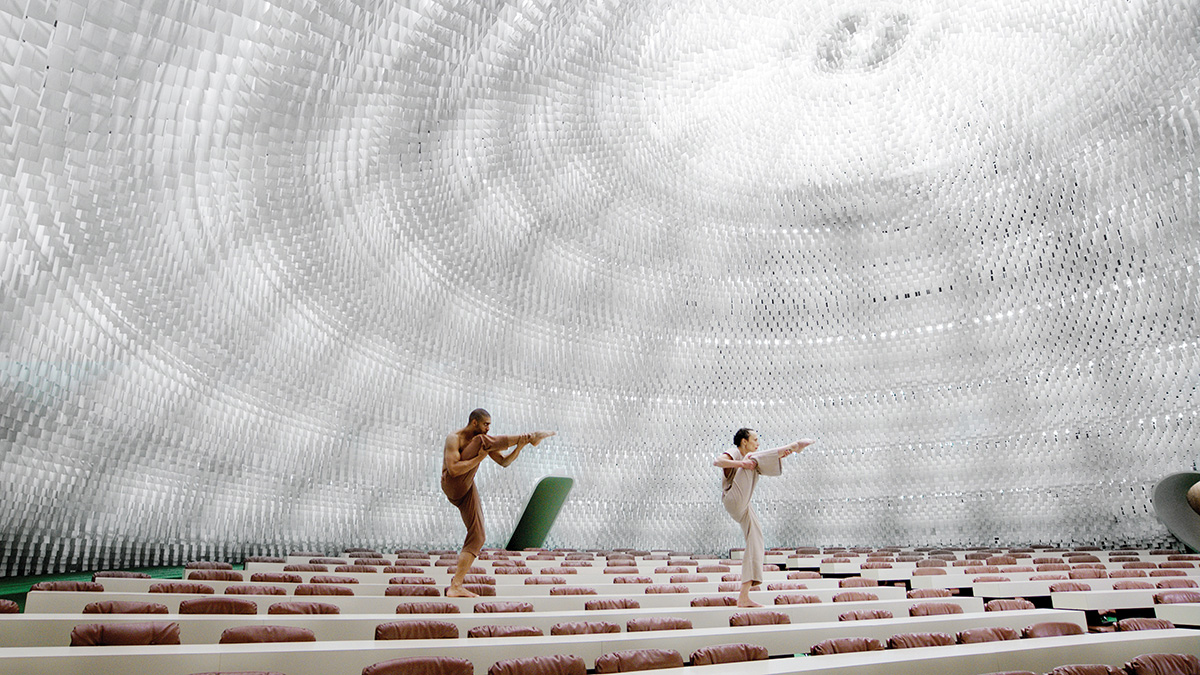
Jasmina Cibic
The Gift
Experimental fiction | 4k | color | 27:56 | Slovenia, France | 2021
The Gift is a film about the use and abuse of culture in times of political and ideological crisis. It tells the story of a competition for a perfect gift that could heal a broken nation. The Gift is composed entirely of historical ready-mades that include some of the most perturbing examples of art, music and architecture deployed as trojan horses of political powers. The film’s locations include iconic buildings which were all political gifts themselves - including Oscar Niemeyer’s French Communist Party HQ in Paris, the Palace of Nations in Geneva, Mount Buzludzha in Bolgaria and the Palace of Culture and Science in Warsaw.
Jasmina Cibic is a Slovenian artist currently based in London, who works in film, performance and installation. She represented Slovenia at the 55th Venice Biennial with her project “For Our Economy and Culture”. Her recent exhibitions include solo shows at: Museum der Moderne Salzburg, The Highline New York, macLyon, Museum Sztuki ?ód?, Museum of Contemporary Art Ljubljana, CCA Glasgow, Phi Foundation Montreal, BALTIC Centre for Contemporary Art Gateshead, Ludwig Museum Budapest, Kunstmuseen Krefeld along with group exhibitions at MAXXI Rome, Steirischer Herbst ‘19, MOMA NY, Marta Herford and Guangdong Museum of Art China. Cibic’s films have been screened at the Barbican London, Whitechapel Gallery, CCA Montreal, Pula Film Festival, HKW Berlin, Louvre, Les Rencontres Internationales Paris, Aesthetica, Berwick Film and Media Arts Festival, BFI London Film Festival, Dokfest Kassel and Copenhagen International Documentary Festival. Cibic was the winner of the MAC International Ulster Bank and Charlottenborg Fonden awards (2016), the B3 Biennial of the Moving Image Award (2020) and the Film London Jarman Award (2021).
Iván Argote : Levitate - Experimental doc. | 0 | color | 24:0 | France, Italy | 2022
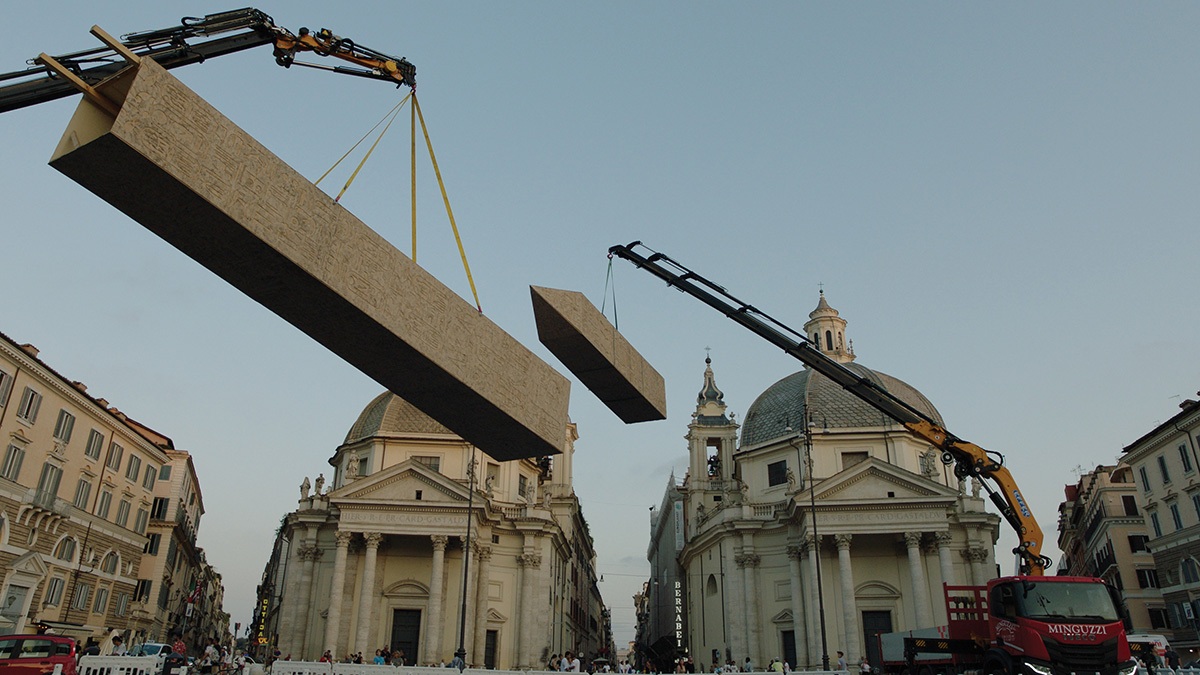
Iván Argote
Levitate
Experimental doc. | 0 | color | 24:0 | France, Italy | 2022
What do monuments want, do, and stand for in our memories and public spaces? Levitate, a new film by Colombian artist Iván Argote, questions the histories, functions and possible futures of colonial icons that still today define the identity of modern European cities. In what the artist calls three anticipatory actions, organized as grand-scale performances in the centers of Rome, Madrid, and Paris, we are confronted with three emblems of control and domination that still exert, undisturbed, their symbolic power from atop their pedestals. The Flaminian obelisk in the Piazza del Popolo, which came to Rome at the behest of Emperor Agustus in 10 B.C.; the statue of Christopher Columbus erected to commemorate the day of the "discovery" of the Americas; and the statue of French military officer and colonial administrator Joseph Gallieni, are suspended, displaced from their position as vertical markers of power and tools for propaganda. Their disruption, albeit ephemeral, immediately opens up a space of public discussion.
Iván Argote is a Colombian artist and film director based in Paris. Through his sculptures, installations, films and interventions, he questions our Relation with others, with power structures and belief systems. He develops strategies based on tenderness, affect and humor through which he generates critical approaches to dominant historical narratives. In his interventions on monuments, large-scale ephemeral and permanent public artworks, Iván Argote proposes new symbolic and political uses of public space. Iván Argote studied graphic design, photography and new media at the Universidad Nacional de Colombia in Bogotá and holds an mfa from the Ecole Nationale Supérieure des Beaux-art (Ensba) in Paris. His work has been the subject of solo exhibitions at Albarrán Bourdais Gallery (Madrid, 2022), Dortmunder Kunstverein (Dortmund, 2021), Perrotin Gallery (New York, 2021 & Paris, 2018), Artpace (San Antonio, TX, 2021), Asu Museum (Phoenix, 2019), Malba (Buenos Aires, 2018), Museo Universitario Del Chopo (Mexico City, 2017), Galeria Vermelho (Sao Paulo, 2017), Palais De Tokyo (Paris, 2013) and Ca2m (Madrid, 2012). Works by the artist are included in the permanent collections of numerous prestigious institutions worldwide, including the Guggenheim Museum (New York, Us); Centre Pompidou (Paris, France); Asu Art Museum (Phoenix, Us); Cisneros Fontanals Art Foundation (Miami, Us); Colección De Arte Del Banco De La República (Bogotá, Colombia); Kadist (San Francisco, Us); Macba (Barcelona, Spain).
Clemens Von Wedemeyer, Paula Ábalos, Emerson Culurgioni, Charlotte Eifler, Deborah Jeromin, Mikhail Tolmachev : Ausbeutung, Oder Wie Man Die Oberfläche Durchbricht - Video | 0 | color | 14:30 | Germany, Chile | 2021
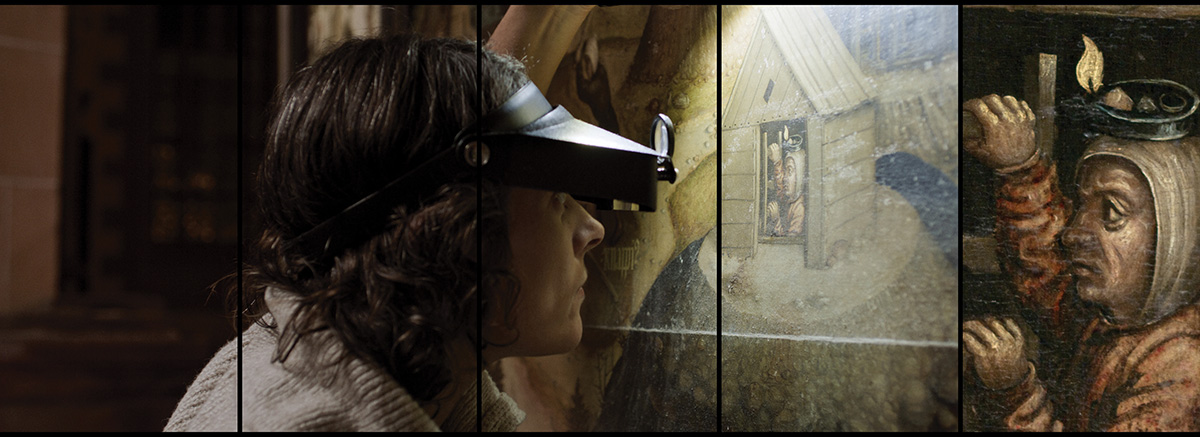
Clemens Von Wedemeyer, Paula Ábalos, Emerson Culurgioni, Charlotte Eifler, Deborah Jeromin, Mikhail Tolmachev
Ausbeutung, oder wie man die Oberfläche durchbricht
Video | 0 | color | 14:30 | Germany, Chile | 2021
Ausbeutung oder wie man die Oberfläche durchbricht (Exploitation or How to Break Through the Surface) tells the story of a restorer who studies the history of mining, guided by Hans Hesse's painting on the back of the mountain altar in St Anne's Church in Annaberg-Buchholz. The protagonist sinks deeper and deeper into her research, trying to get behind the surface of the painting and into the present of extraction of new resources.
PAULA ÁBALOS Born in 1989 in Santiago, Paula Ábalos lives and works in Leipzig (Germany). Her work has been presented at the 18th Videonale of the Kunstmuseum Bonn (2021), at the 37th Kasseler Dok Fest (Kassel, 2020), at the City Screen of the LOOP Barcelona festival (2017), at the Kunst-Film-Festival of the GEH8 (Dresden, 2020) and at the Galería Concreta Matucana 100 (Santiago, 2019). In 2020, she received the GOLDEN CUBE award from the 37th Kasseler Dok Fest, as well as the Rundgang 50Hertz award from the Hamburger Bahnhof Museum (Berlin, 2021). In 2021, one of her video works was acquired by the Kulturstiftung collection of Freistaats Sachsen. EMERSON CULURGIONI Born in 1986 in Munich (Germany), Emerson Culurgioni lives and works between Berlin and Leipzig (Germany). Director and visual artist, iI recently completed his second feature film. Trained in photography and classical documentary, he developed a research based mode of filmmaking that includes actors and non-actors. CHARLOTTE EIFLER Born in 1986 in Rostock (Germany), Charlotte Eifler lives and works between Leipzig (Germany), Berlin and Karlsruhe (Germany). Her work is located at the intersection of cinema, sound and technology. In her videos and multimedia installations, she questions the politics of representation, abstraction and computation. With a focus on feminist approaches and elements of science fiction, Charlotte Eifler explores the processes of image production and the imaginaries of alternative futures. She currently teaches image politics and editing practice at the Hochschule für Gestaltung in Karlsruhe. Her work was presented: at the Short Film Festival in Oberhausen (2021), at the International Art Festival in Sapporo (2020), at the Siggraph Congress (Los Angeles, 2020 and 2015), at the Ann Arbor Film Festival (2020), ISCP (New York, 2019), IMPAKT (Utrecht, 2019), Grassi Museum (Leipzig, 2016), Haus der Kulturen der Welt (Berlin, 2015; to come in 2022), at the Museum of Literature in Tblisi (2015), at the Folkwang Museum (Essen, 2014), among others. DEBORAH JEROMIN Born in 1987 in Flensburg (Germany), Deborah Jeromin lives and works between Leipzig (Germany) and Crete (Greece). She develops a research on mainly historical topics and makes them accessible through different media. She focuses on textile handcraft processes, feminist history and sites of National Socialism. MIKHAIL TOLMACHEV Born in 1983 in Moscow, Mikhail Tolmachev lives and works between Leipzig (Germany) and Moscow. After studying photojournalism in Moscow and media arts in Leipzig, he began to develop a research-based practice and became interested in the ever-changing status of a document and the politically mediated production of truth and reality. He collaborates with writers, historians and artists to explore the fractures of representation and to rethink the conventions of spectatorship. His practice encompasses sound installations, videos, photographs and spatial interventions. CLEMENS VON WEDEMEYER Born in 1974 in Göttingen (Germany), Clemens von Wedemeyer lives and works between Berlin and Leipzig (Germany). He has participated at the Chicago Architecture Biennial in 2020, the Cologne Film Festival in 2008, documenta 13 in Kassel (2012), the Berlin Biennale (2006) and the first Moscow Biennale (2005). Monographic exhibitions have also been devoted to him, notably at Haus der Kulturen der Welt, Berlin (2021), at the Auditorium du Louvres, Paris (2019), at MIEFF, Moscow (2019), at Tate Modern, London (2015), at MAXXI, Rome (2013-2014), at MoMA, New York (2007), and at ARGOS Centre for Art and Media, Brussels (2007).
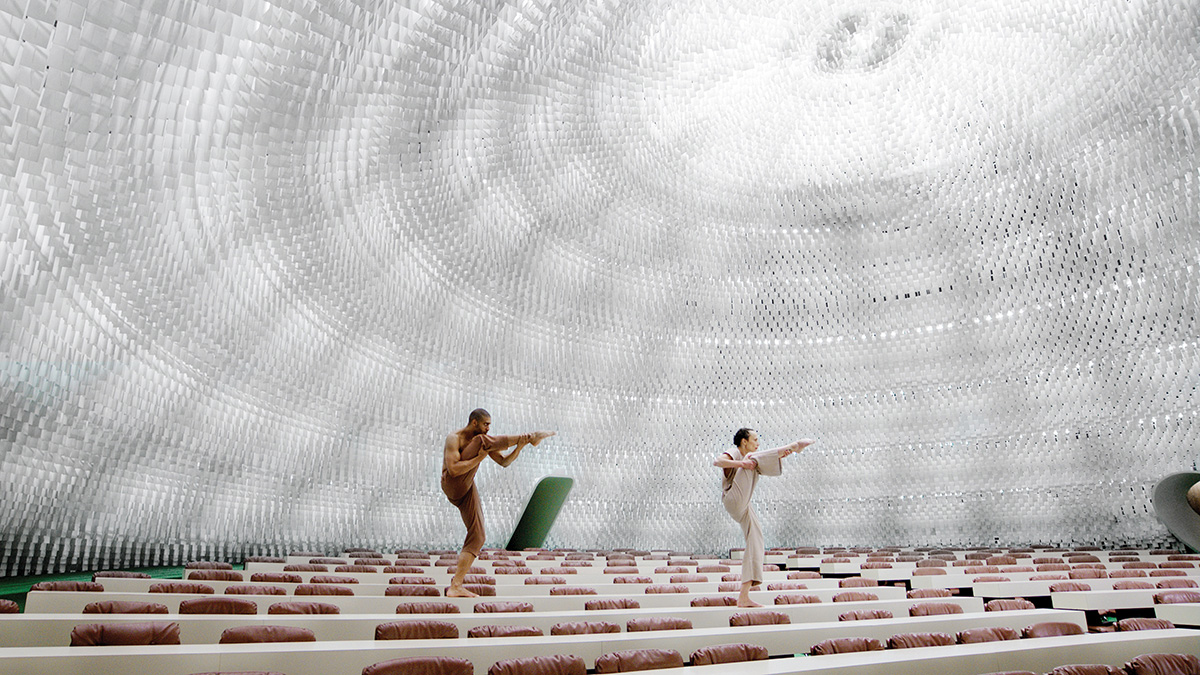
In the storerooms of the Neue Galerie in Graz, Assaf Gruber films a naked musician playing a familiar melody, in front of works that belong to a grey area between modernist aspirations and Nazi enthusiasm, combining a taste for the exotic and local patriotism, religious fervour and eroticism. Jasmina Cibic questions the use of culture in times of political and ideological crisis, filming, for example, at the PCF headquarters in Paris, built by Oscar Niemeyer, the story of a competition for the perfect gift that could heal a broken nation. It examines both the ideals of the past and their collapse in the face of the rise of populism, and the concept of the nation, weakened as a political category but reactivated by right-wing populism. In Rome, Madrid and Paris, Iván Argote has created three 'anticipatory actions', performances that open up a space for public discussion. In so doing, he questioned the history, functions and possible futures of monuments, like so many colonial icons that still define the identity of modern European cities today. In the collective film "L'exploitation ou comment percer la surface", a restorer analyses a Renaissance painting. Working on the subject of mining, she goes beyond the surface of the painting to ask questions about the contemporary extraction of resources.
Opening
Haus der Kulturen der Welt | Auditorium
John-Foster-Dulles Allee 10, 10557 Berlin / Subway: lines S5, S7, S9, S75, station: Hauptbahnhof
Free admission
Party / Live mix by Mobiletti Giradischi (INT)
Rare or forgotten sounds. Giradschi will delve deep down into the record digital bag to feed up a viscous flow of rare and interesting tunes.
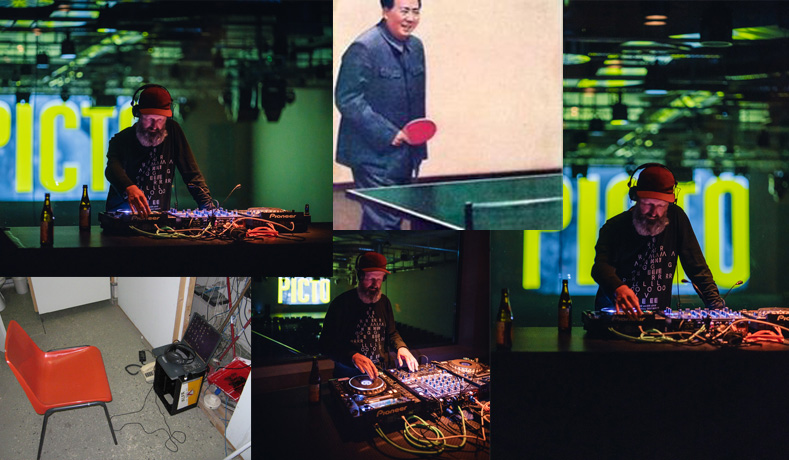
.